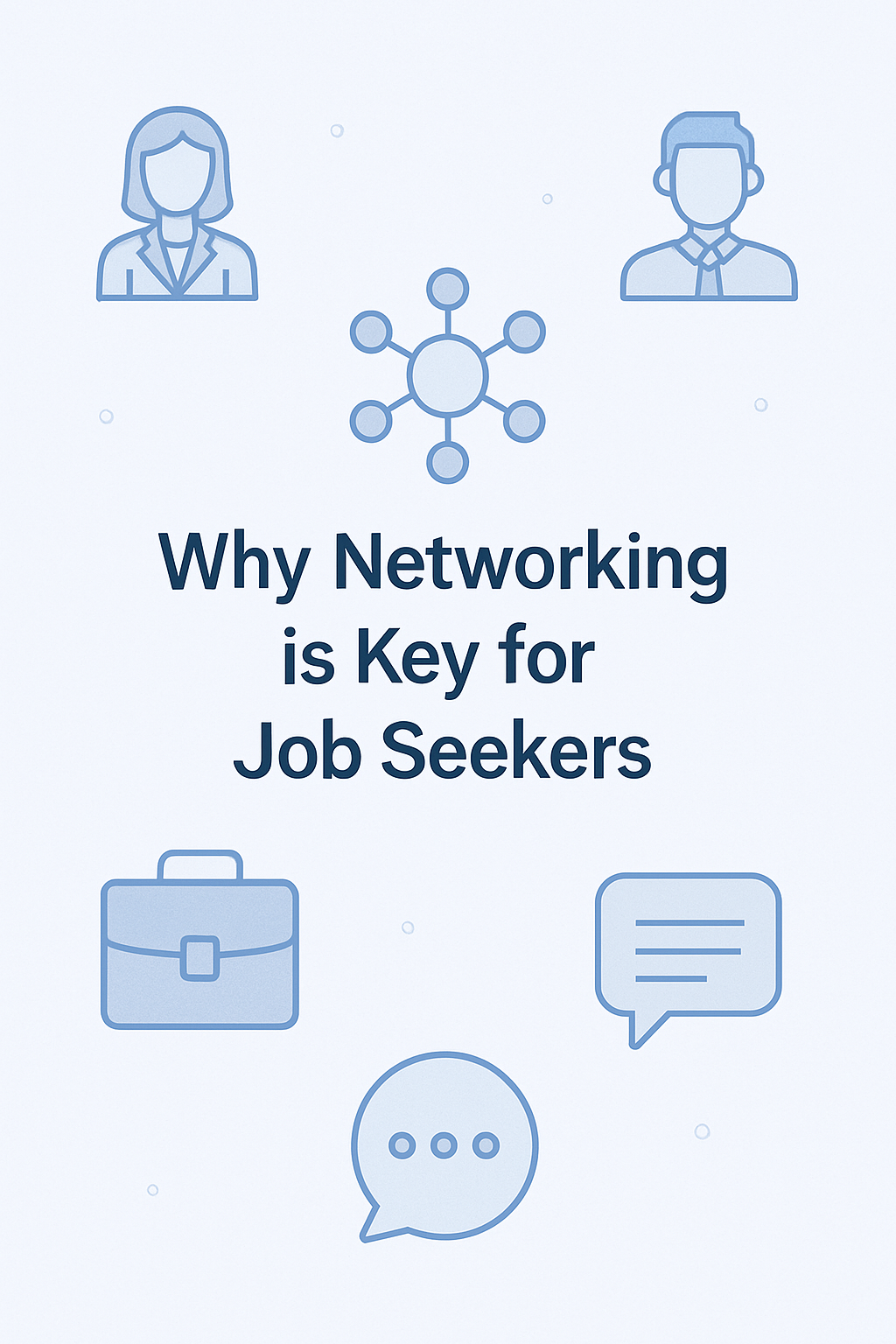job search landscape is more competitive and dynamic than ever before. Traditional methods—submitting resumes and waiting for replies—are no longer sufficient. Today, networking stands out as the single most powerful strategy for career success. With AI-driven hiring tools, applicant tracking systems (ATS), and remote-first work cultures, personal connections have become the true differentiator. If you’re a job seeker in 2025, networking isn’t just helpful—it’s essential.
1. The Power of Hidden Job Markets
Studies show that up to 80% of jobs are never advertised publicly. These roles are filled through referrals, word-of-mouth, or internal recruitment.
Why This Matters:
- You gain access to roles before they’re posted
- Your application bypasses the ATS filters
- A referral increases your chances of getting hired by 4x
Pro Tip: Cultivating relationships within companies of interest gives you a front-row seat to opportunities.
2. Building Authentic Relationships
Networking in 2025 is about authenticity and mutual value—not transactional connections.
Strategies:
- Focus on building long-term professional relationships
- Offer insights or help before asking for favors
- Share relevant articles, congratulate milestones, and check in regularly
Platforms to Use:
- Twitter/X (for thought leadership)
- Slack communities
- Alumni groups and mentorship platforms
3. Leveraging Technology to Network Smarter
In today’s digital world, networking isn’t just about face-to-face events. It’s about smart, strategic digital engagement.
Tools and Tips:
- Use LinkedIn’s “Alumni” feature to find connections by university and employer
- Join niche communities on Reddit, Discord, or industry-specific forums
- Attend webinars, live streams, and virtual meetups with chat functionality
Emerging Tools:
- Lunchclub (AI-powered networking)
- Polywork (professional collaboration platform)
- Shapr (Tinder-style networking)
4. Virtual Events and Conferences
Remote events have become the norm, making it easier than ever to network globally.
Benefits:
- Access to experts and influencers worldwide
- Opportunities for real-time Q&A and follow-ups
- Recordings allow for post-event reflection and outreach
Action Step: Attend one virtual event per month in your target industry. Follow up with speakers or attendees on LinkedIn.
5. Informational Interviews: Underrated and Powerful
An informational interview is a conversation—not a job pitch—designed to gather insights from a professional in your desired field.
How to Make It Work:
- Reach out with a clear, respectful message
- Prepare thoughtful questions
- Keep it brief (15–20 minutes)
- Follow up with a thank-you and updates
Outcome: You gain insider knowledge, build rapport, and may earn a referral when a role opens.
6. Enhancing Your Online Presence
Your online reputation matters. Employers and professionals often Google candidates before meetings or referrals.
Must-Haves:
- Updated LinkedIn profile with keywords and achievements
- A consistent professional photo across platforms
- Clean digital footprint (review your privacy settings)
Bonus: Publish short posts or articles to demonstrate expertise in your field.
7. Networking Within Your Current Role or School
Don’t overlook your current environment. Your boss, professors, classmates, or coworkers can open doors.
Simple Ways to Network:
- Join cross-functional projects
- Attend internal events and seminars
- Request mentorship or job shadowing opportunities
Stat: Internal referrals remain one of the top hiring sources in 2025.
8. The Rise of Community-Based Hiring
More companies are turning to online communities to find talent. Startups, especially, rely on Slack groups, Discord channels, and newsletters.
Examples:
- Designer Hangout (for UX/UI professionals)
- Indie Hackers (for tech entrepreneurs)
- Women Who Code (for female developers)
Tip: Contribute consistently—answer questions, share insights, and build your presence.
9. The Psychological Edge of Networking
Job searching can feel isolating. Networking offers emotional support, accountability, and shared learning.
Benefits:
- Encouragement from peers
- Fresh job leads and resume tips
- Increased confidence from practice conversations
Suggestion: Form a weekly check-in group with other job seekers to share progress and insights.
10. How to Maintain and Grow Your Network
Networking isn’t a one-time action—it’s a continuous process.
Best Practices:
- Send check-in messages quarterly
- Celebrate others’ achievements
- Offer value: recommend resources, introduce people, or give endorsements
Tool: Use a CRM like Notion, Airtable, or Dex to track your networking efforts and follow-ups.
Networking is Your Career Superpower in 2025
In 2025, networking is more than just a buzzword it’s a foundational skill for career advancement. By focusing on authentic relationships, leveraging digital platforms, and staying consistent, you’ll not only uncover hidden job opportunities but also build a support system that accelerates your professional growth.
Start small, stay curious, and be generous. Your next opportunity might be one conversation away.
